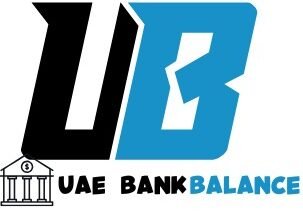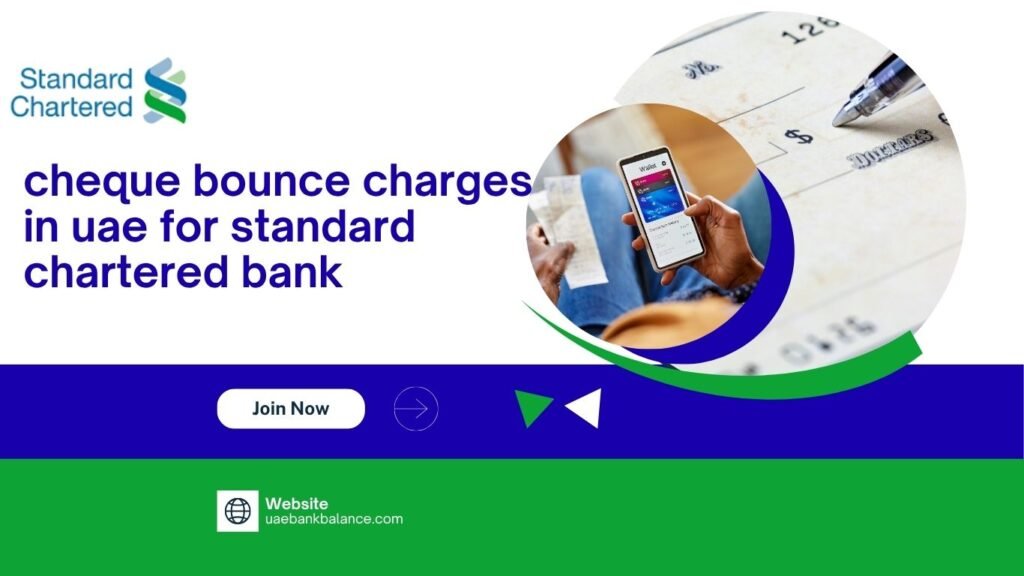In the fast-paced and highly regulated financial environment of the UAE, checks remain an essential payment method for both individuals and businesses. However, one financial misstep—bouncing a check—can lead to a cascade of consequences, including financial penalties and legal action. For customers of Standard Chartered Bank UAE, it’s crucial to understand the potential charges and the steps to avoid such an outcome.
In this comprehensive guide, we’ll dive into the details of check bounce charges in the UAE for Standard Chartered Bank, including the reasons why checks bounce, the charges that come with it, and the steps you can take to protect yourself. Whether you’re an individual trying to keep your finances in check or a business handling payments, this article will equip you with all the information you need to navigate the world of check payments in the UAE.
What is a Cheque Bounce and Why Does it Happen?
A cheque bounce occurs when a bank refuses to honor a cheque that has been issued due to insufficient funds in the account or other reasons. In the UAE, bouncing a cheque is not only an inconvenience, but it can also lead to severe financial and legal consequences, especially if it’s a recurring issue.
There are several reasons a cheque might bounce, including:
- Insufficient Funds: The most common reason is that there aren’t enough funds in the issuer’s account to cover the cheque amount. This is a straightforward case of not having the necessary balance.
- Account Issues: If the account has been closed or is frozen for some reason, the bank will refuse to process the cheque.
- Technical Errors: Occasionally, technical issues such as mismatched signatures or incorrect cheque details may cause a cheque to be rejected.
- Post-Dated Cheques: A cheque presented before its date may also be bounced, particularly if it’s outside the standard clearing period.
While the reasons for a bounced cheque are varied, the financial repercussions for the person who issued the cheque can be significant, especially when dealing with institutions like Standard Chartered Bank UAE.
Consequences of a Cheque Bounce in the UAE
In the UAE, the consequences of bouncing a cheque extend beyond just the financial penalties. There are serious legal implications, particularly if the incident is not resolved promptly. Here’s an overview of the potential consequences:
1. Financial Penalties
Banks like Standard Chartered impose a cheque bounce charge when a cheque is returned unpaid. These charges are typically levied to recover the administrative costs associated with processing a returned check. For Standard Chartered Bank UAE, this charge is generally in the range of AED 100 to AED 250 for each bounced cheque. However, the fee can vary depending on the cheque amount, the specific bank branch, and whether the situation involves multiple instances of bounced cheques.
2. Impact on Credit Rating
A bounced cheque can negatively impact your credit score, which may hinder your ability to secure loans, credit cards, or other forms of credit in the future. Financial institutions in the UAE, including Standard Chartered, report defaults and bounced cheques to Al Etihad Credit Bureau (AECB), which is responsible for maintaining individuals’ credit histories.
3. Legal Action
In some cases, a bounced cheque in the UAE can lead to legal action. If you fail to settle the amount of the bounced cheque, the creditor can file a case against you in the courts. This can result in fines, travel bans, and even imprisonment for certain cases of cheque dishonor. UAE law views cheque bouncing as a criminal offense, especially if the cheque was issued with the intention of defrauding the recipient.
4. Reputation Damage
Whether you’re an individual or a business, having a cheque bounce on your record can damage your reputation, especially in a close-knit business community like that of the UAE. For businesses, a bounced cheque can hurt relationships with suppliers, customers, and partners, leading to a loss of trust and business opportunities.
How to Avoid Bouncing a Cheque in the UAE
Given the potentially severe consequences of a bounced cheque, it’s vital to take proactive measures to ensure that your cheques are honored. Here are some tips on how to avoid the unpleasant experience of a bounced cheque:
1. Maintain Sufficient Funds in Your Account
The most effective way to prevent a bounced cheque is to ensure there are always sufficient funds in your account before issuing a cheque. Standard Chartered offers several tools for monitoring your account balance, including mobile banking apps and alerts for low balances. Take advantage of these tools to stay on top of your finances.
2. Double-Check the Details
Before issuing a cheque, carefully check the details, such as the date, amount, and recipient information. Any discrepancies can lead to the cheque being returned. Also, ensure that your signature matches the one on file with the bank.
3. Avoid Post-Dated Cheques
Issuing post-dated cheques is a common practice in the UAE, but it’s essential to ensure that the cheque is presented at the correct time. A post-dated cheque presented before the date may lead to rejection. If you’re unsure, consult your bank for guidance on managing post-dated cheques properly.
4. Link Your Bank Account to Overdraft Protection
To prevent the unfortunate scenario of insufficient funds, consider linking your Standard Chartered account to an overdraft facility. This will allow your account to cover the shortfall when issuing a cheque, ensuring that your check doesn’t bounce.
5. Communicate with Your Bank
If you anticipate any issues with funds in your account, communicate with Standard Chartered well in advance. In some cases, banks may offer solutions such as temporary overdrafts or a loan extension to help you meet the obligations of the cheque.
What to Do if Your Cheque Bounces
If your cheque has already bounced, here are the steps you should take to rectify the situation and avoid further complications:
1. Check with the Bank
Contact Standard Chartered Bank as soon as you are notified of the bounced cheque. The bank will inform you of the reason for the bounce, whether it was due to insufficient funds, a technical error, or another issue. Understanding the cause will help you resolve the issue more quickly.
2. Settle the Outstanding Amount
If the bounce was due to insufficient funds, ensure that the account is funded and that the outstanding amount is cleared immediately. You may need to reissue the cheque or make an alternative payment to the beneficiary.
3. Pay the Cheque Bounce Charges
In most cases, there will be a cheque bounce fee imposed by Standard Chartered. Settle this fee promptly to avoid accumulating additional charges or penalties.
4. Resolve Any Legal Issues
If legal action has been initiated due to the bounced cheque, it’s crucial to consult with a lawyer to understand your rights and options. Address the situation as soon as possible to avoid further escalation.
Conclusion: The Importance of Managing Your Cheques Responsibly
In the UAE, where cheques remain a preferred mode of payment, it’s essential to be aware of the consequences that come with a bounced cheque. For Standard Chartered customers, understanding the cheque bounce charges, the reasons behind bounced cheques, and the legal implications is critical in avoiding unnecessary penalties and legal trouble.
By taking proactive steps such as maintaining sufficient funds, double-checking your cheque details, and communicating effectively with the bank, you can minimize the risk of a bounced cheque. And in case of a bounce, acting quickly to resolve the issue will help you maintain a positive financial reputation and avoid any lasting damage to your credit.
Remember, cheques are a trusted financial tool, but they come with responsibilities. Managing your finances wisely ensures smooth transactions and keeps you from falling into the pitfalls of financial penalties in the UAE.
FAQ
1. How much is the cheque bounce charge at Standard Chartered in the UAE?
The charge for a bounced cheque at Standard Chartered Bank typically ranges from AED 100 to AED 250, but it can vary based on the specific situation.
2. Can I avoid cheque bounce charges in the UAE?
Yes, by maintaining sufficient funds in your account, double-checking cheque details, and avoiding post-dated cheques, you can reduce the chances of a bounce.
3. What happens if I don’t pay the cheque bounce charge?
Failure to pay the cheque bounce fee may result in additional penalties, interest charges, and potential damage to your credit score.
4. What legal consequences are there for bouncing a check in the UAE?
Bouncing a check in the UAE can result in legal action, including fines, a travel ban, and even imprisonment in severe cases. Always resolve any bounced check issues promptly to avoid such consequences.
5. How can I prevent bounced checks from happening?
You can prevent bounced checks by ensuring sufficient funds are available in your account, checking check details carefully, and maintaining an overdraft protection option.
Read More:
- For a detailed guide on checking your FAB balance online, visit FAB Balance Check



